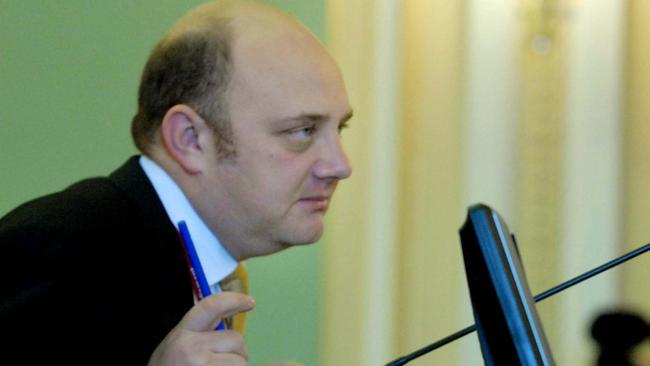Crime and Corruption Commission laws slammed by Clerk of the Parliament, Neil Laurie
In an extraordinary accusation, the man in charge of Queensland Parliament has slammed the state’s corruption watchdog for what he says is an unjustifiable power grab that sets it up as judge and jury of all politicians.
QLD Politics
Don't miss out on the headlines from QLD Politics. Followed categories will be added to My News.
THE man in charge of Queensland Parliament has accused the state’s corruption watchdog of an unjustifiable power grab that sets it up as judge and jury of all politicians.
And he suggests that unwelcome move has been driven by its own impotence in enforcing the Ministerial Code of Conduct in cases of unethical ministerial behaviour.
Ethics Committee critical of CCC’s ‘lack of evidence on need for strict liability laws’
Committee responds to corruption watchdog criticism that integrity laws inadequate
Opinion: Prominent lawyer says so called ‘Trad laws’ go too far
Corruption watchdog savages draft of ‘Trad laws’
The extraordinary accusations levelled by the long-serving Clerk of the Parliament, Neil Laurie, is contained in a scathing submission on the Government’s Trad Laws, which seek to criminalise politicians who do not declare their conflicts of interest.
In it, Mr Laurie accuses the Crime and Corruption Commission (CCC) of “law reform by media release”, proposing strict liability laws with “no evidence of proper policy formulation”.
The Palaszczuk Government has proposed laws that would see a minister face two years jail if they intentionally do not to declare their interests, but CCC head Alan MacSporran his since demanded all MPs face criminal sanctions, whether intention can be proved or not.
Mr Laurie, who oversees the Register of Member’s Interests and is highly regarded by all sides of politics, said the CCC’s recommendations “may criminalise genuine error or tardiness”.
There would likely be “perverse outcomes” because the CCC’s recommendations “have no regard for important constitutional conventions and structures”, he said.
“One result of the implementation of the CCC’s recommendations is an unjustifiable increase in the jurisdiction of the CCC over members of parliament,” he wrote.
“There is a risk of discretionary enforcement of such provisions by the CCC, which will undermine public confidence in the CCC by its increasing involvement in political matters that should be dealt with by the system of responsible government.”
The CCC’s recommendations were developed out of its assessment of Deputy Premier Jackie Trad’s failure to properly declare an investment home on the Cross River Rail route.

“In my opinion the CCC’s recommendations are purely reactive and are a direct result of the CCC’s impotence in one particular matter,” Mr Laurie wrote.
“… The CCC is clearly frustrated by what it perceives to be a lack of enforcement of the Ministerial Code of Conduct.
“… The CCC holds an important, but non-traditional, position in our State’s system of government and should not allow its impotence in dealing with a particular matter or its frustration at how a particular matter has been dealt with to avoid proper policy formulation.”
Mr Laurie said he rejected that backbenchers should be subject to the same standards and questioned why MPs should be criminals for “innocent omissions or mistakes” on their register of interest.
“The benchmark for unethical behaviour cannot be the criminal law,” he wrote.
“One difficult and unusual issue should not lead to the introduction of bad law.”


